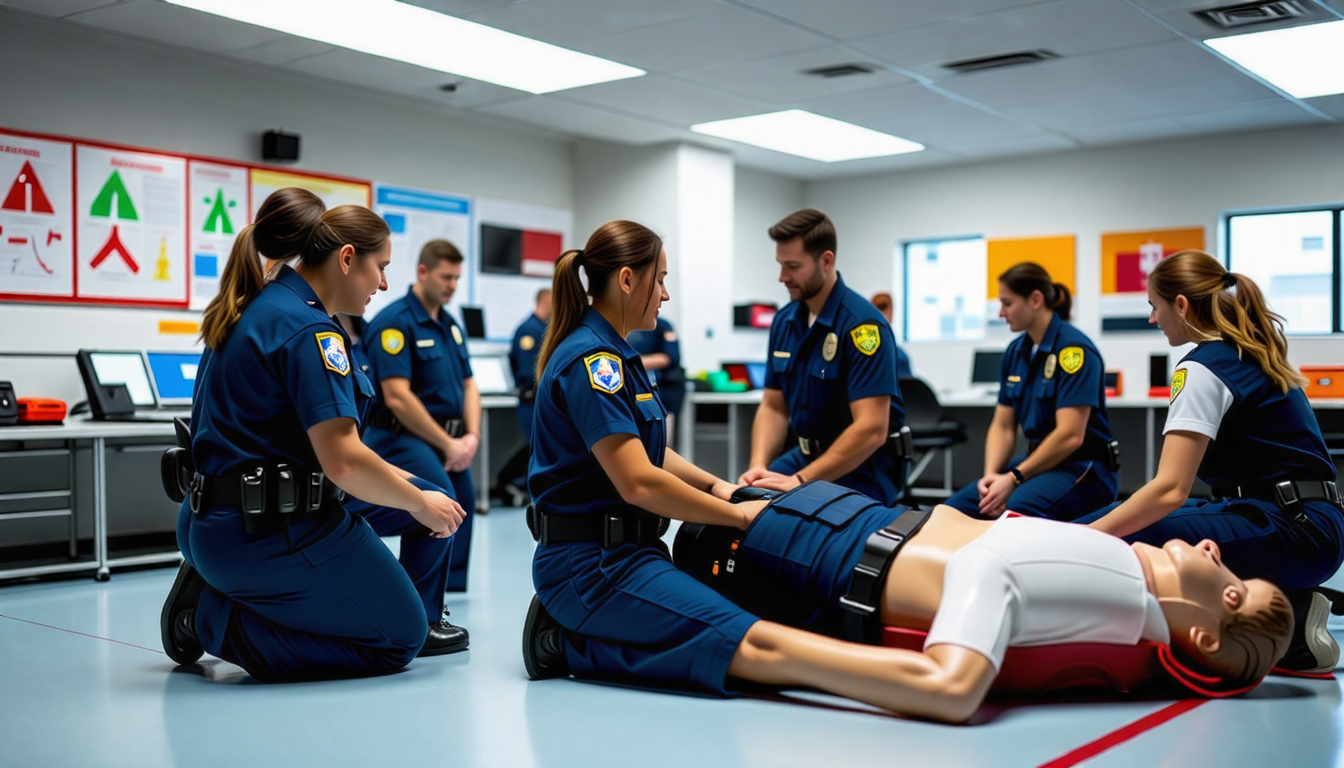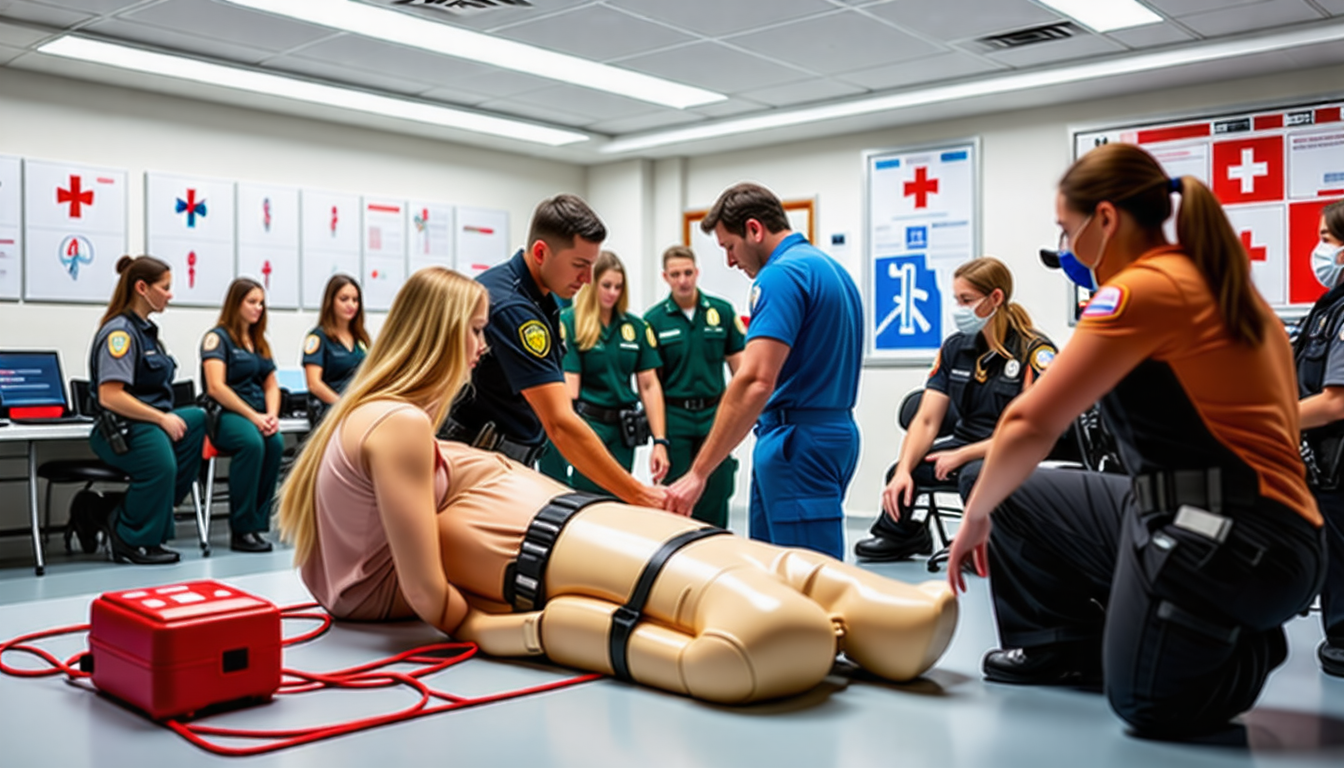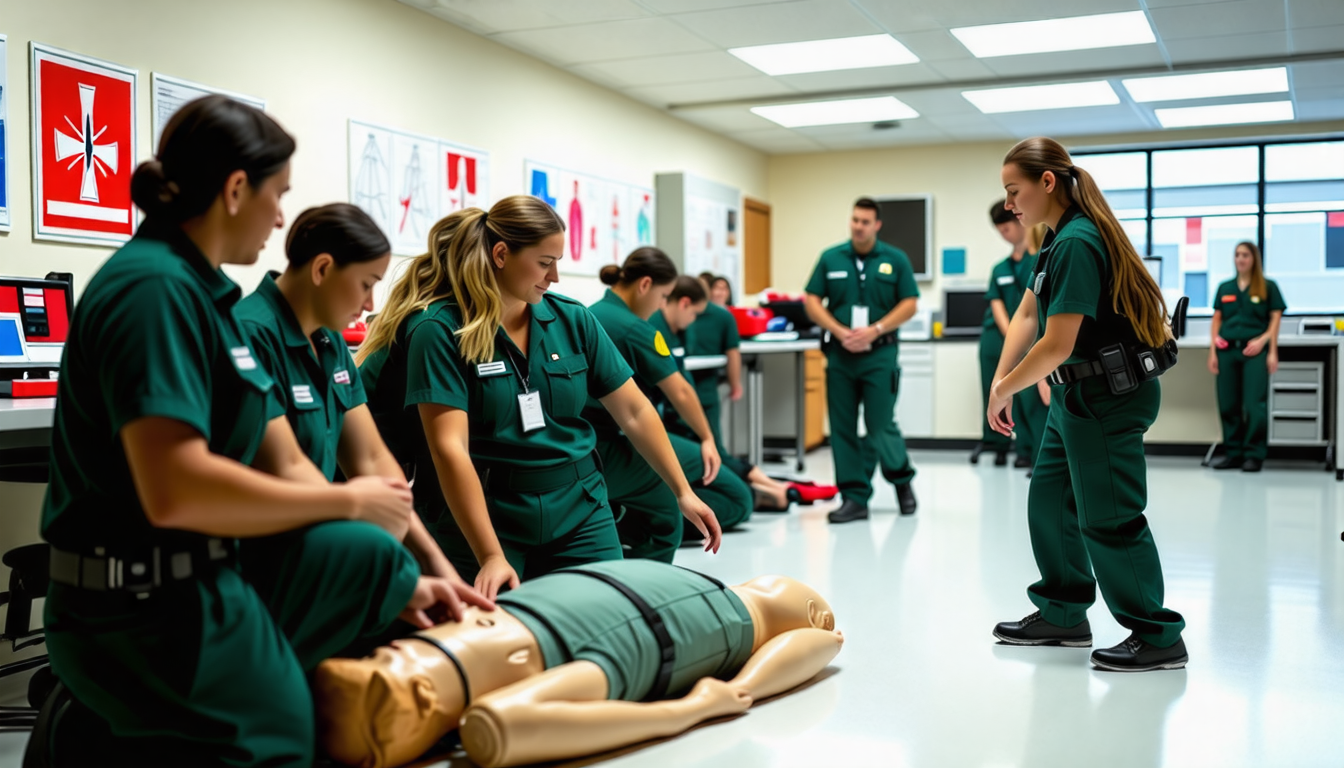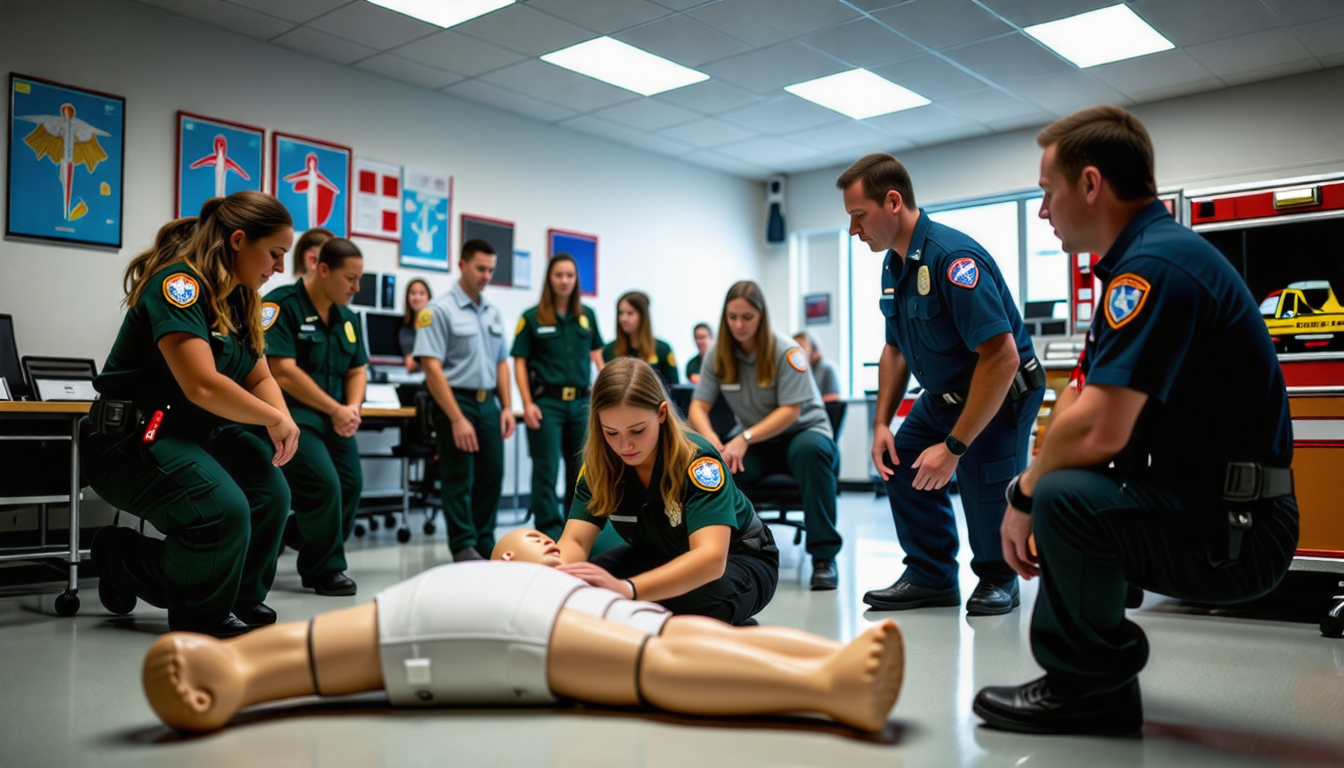|
IN BRIEF
|
In the realm of emergency medical services, the role of a paramedic is pivotal, serving as a crucial link between critical situations and patient care. To excel in this high-pressure field, prospective paramedics must undergo rigorous training that equips them with an array of essential skills and in-depth knowledge. From mastering patient assessments to developing advanced cardiac management techniques, each component of their education is meticulously designed to prepare them for the unpredictable challenges they will face. Not only do they need to acquire clinical skills, but they must also foster soft skills, such as effective communication and teamwork, enabling them to navigate dynamic environments with confidence and empathy. As they emerge from their training, these professionals are equipped to save lives and provide indispensable support during emergencies.

The training process for paramedics is intricate and multifaceted, focusing on a range of essential skills and knowledge that equip them to function effectively in emergency medical services. Through this training, paramedics develop both clinical competencies and soft skills that are necessary for providing high-quality care in diverse, high-pressure environments.
Conclusion on Paramedic Training
The training for paramedics is designed to cultivate a comprehensive skill set that spans clinical expertise, communication capabilities, and ethical awareness. Each component of the training plays a critical role in preparing paramedics to deliver effective, timely care to those in need, ultimately enhancing the overall quality of emergency medical services.
Clinical Skills Development
In addition to anatomical knowledge, paramedics must gain a variety of clinical skills. These skills include basic life support and advanced life support techniques. Training programs typically emphasize the importance of cardiac management, which involves administering cardiopulmonary resuscitation (CPR) and utilizing automated external defibrillators (AEDs). Proficiency in these techniques can be the difference between life and death for a patient experiencing cardiac arrest.
Patient Assessment Techniques
Effective patient assessment is one of the most crucial skills paramedics learn during training. This process involves systematically gathering information about the patient’s medical history, current condition, and any medications they are taking. Training in this area includes learning how to accurately measure vital signs, such as temperature, blood pressure, heart rate, and respiratory rate. A thorough patient assessment is imperative, as it forms the basis for all subsequent treatment decisions.

The training of paramedics is crucial for ensuring efficient and effective emergency medical response. An essential component of this training includes the development of specific skills and knowledge required to manage a variety of situations. For instance, paramedics need to master patient assessment. This skill allows them to systematically evaluate a patient’s condition, a practice fundamental to delivering appropriate care.
Moreover, mastering cardiac management is vital. Paramedics must be proficient in performing cardiopulmonary resuscitation (CPR), especially for infants and children, where techniques can vary significantly compared to adults. Additionally, communication skills are indispensable, as paramedics must often liaise with dispatchers, physicians, and family members in high-pressure situations.
Beyond technical abilities, soft skills such as teamwork, problem-solving, and situational awareness are essential. For example, being able to think critically and creatively under duress can make a life-saving difference. Comprehensive training programs usually integrate anatomy, physiology, and advanced life support techniques, ensuring paramedics are thoroughly prepared to face the demands of their roles, with a reported completion rate of over 85% in accredited programs.

When it comes to training for paramedics, mastering essential skills and acquiring the necessary knowledge are imperative for success in this demanding field. The ability to conduct thorough patient assessments, interpret vital signs, and respond effectively in high-pressure situations cannot be overstated. Moreover, the integration of communication skills, both during emergencies and when interacting with patients and their families, highlights the importance of a holistic approach to care. Paramedics must also cultivate problem-solving abilities and remain adaptable to a variety of scenarios. Ultimately, a well-rounded education combined with practical experience ensures that paramedics are equipped to provide exceptional care and navigate the complexities of emergency medical services.
FAQ
What are the essential skills required for paramedic training?
R: Essential skills for paramedic training include patient assessment, cardiac management, effective communication, problem-solving, and situational awareness. These skills are vital to ensuring effective emergency care and patient safety.
How important is teamwork in paramedic training?
R: Teamwork is crucial in paramedic training as it enhances collaboration in high-pressure situations. Paramedics often work alongside EMTs and other healthcare professionals, making the ability to work well within a team essential for delivering quality care.
What knowledge areas should be covered in paramedic training?
R: Paramedic training should cover a range of knowledge areas including anatomy and physiology, advanced life support techniques, pediatric care, and pharmacology. This comprehensive understanding empowers paramedics to respond effectively to diverse medical emergencies.
How do paramedics develop their assessment skills?
R: Paramedics develop their assessment skills through hands-on training and practice. This includes learning to evaluate vital signs, identify injuries, and understand medical histories. Regular simulation exercises also help refine these skills.
What role does communication play in paramedic training?
R: Communication is a key component of paramedic training. Paramedics must be able to clearly and effectively communicate with patients, their families, and other healthcare providers. This skill ensures that critical information is shared quickly, which is vital for patient care and coordination.

